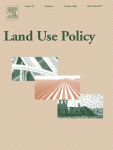Urban and peri-urban forestry and greening in west and Central Asia
FAO has initiated a series of global and regional sector outlook studies to examine linkages between forests and societies and to indicate emerging opportunities and challenges. The Forestry Outlook Study for West and Central Asia (FOWECA) has considered these issues through an extended consultative process in 23 different national contexts in West and Central Asia.




